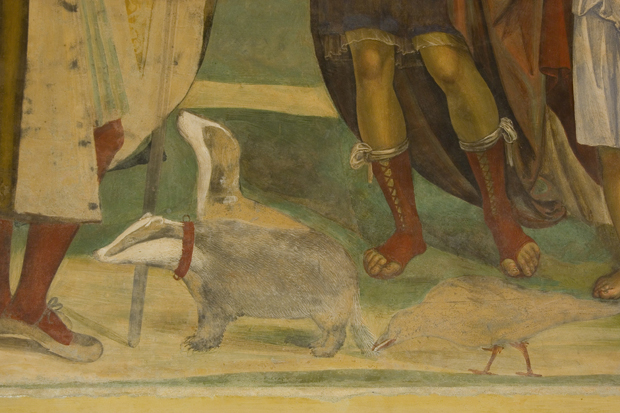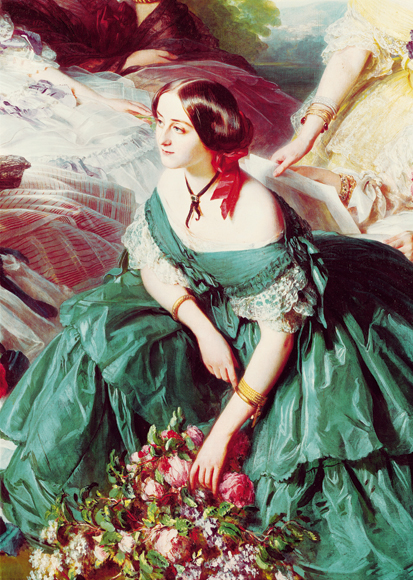The novelist David Plante is French-Québécois by ancestry, grew up in a remote Francophone parish in Yankee New England and came to London half a century ago when still an avid young man. For 38 years he lived there with the late Nikos Stangos, a cosmopolitan of the Greek diaspora, whose father had been expelled from Bulgaria and his mother from Istanbul. Displacement and asylum were so much part of Stangos’s imagination that whenever he saw an old person in the street carrying a suitcase, tears came to his eyes. Stangos’s sensibility, zest and physical grace provide many of the richest moments in his lover’s diaries.
Plante began keeping this diary in 1959. He seems to reckon it as a London counterpart to the journals of the Goncourt brothers or those of the incomparable Count Harry Kessler: ‘A repository of what one day will be considered more than a personal diary, but an account of a certain time.’
Out of many millions of words,he has crafted an experimental amuse-bouche of a book, which is fascinating, muzzy and frustrating by turns. Instead of publishing his diary entries in chronological sequence, he has shuffled their order, discarded the dates and linked them with a retrospective commentary that is blurred with its surroundings. For a novelist this may resemble creative ingenuity, but for the reader it seems too arch. Although the year can often be divined from references to deaths, political events, book publications or art openings, the effect is of encrypting information or befogging a clear view.
The mists are thickest when Plante tries to characterise his exhalations:
In the end, whatever the end may be, my diary will have nothing at all to do with me, but on its own bulge with such a vast roundness that it will go on turning of itself.
If this suggests massive stellar impersonality, the next lines evoke a stalking ogre:
My diary is in itself more possessive than I am, possessed by the concept of everything, and impelled by the possession. I have tried, over and over, to stop writing my diary, but my diary won’t allow me to stop. My diary is a vast Jealous One.
Becoming a Londoner puts one in mind of a stately butler, who is both deferential and conscious of his own compensatory dignity, carrying a salver heaped with embossed visiting-cards. Plante is a champion name-dropper: immediately after recording friends admonishing him for his inveterate and tireless tuft-hunting, he mentions Stephen and Natasha Spender, Philippe and Pauline de Rothschild,
Steven Runciman, Elizabeth Glenconner and the Queen — perhaps with self-mockery, but perhaps not.
Plante’s social position was sponsored by Spender. One surmises from the muddied evidence of these diaries that Stangos had been Spender’s ‘friend with benefits’, and that Spender became both Plante and Stangos’s mentor in literary, bohemian and coroneted London. Certainly Spender’s redoubtable wife, Natasha, mistrusted the pair initially, and treated them with frosty resentment, which seems reasonable, given the deceits and mischief of her husband recounted in the diaries.
If Plante begins his life in London as a handsome young scamp, he develops into a more oracular and perhaps complacent middle age, and ends with a tone of
grieving melancholy. Throughout, as the butler bearing a salver, he remains ingratiating. Stangos warns him after a dinner party:
You talked to try to get people there to like you … You talked to be nice, too, American-nice, saying over and over, ‘That’s so interesting, that’s fascinating, that’s wonderful,’ so no one believed you.
Plante is capable, too, of the wounding gossip of the servants’ hall, as shown by his earlier memoir, Difficult Women, which is based on his diary.
The Spenders are pre-eminent in Plante’s story, but Steven Runciman runs them close. Especially enjoyable is his response when Stangos announces that he is beginning Kleinian psychoanalysis. After a pause Runciman proposes an alternative: ‘I would suggest a long sea voyage.’ There are boozy rampages with Francis Bacon, wild tales of Sonia Orwell, mordant portraits of W.H. Auden in decline and of Christopher Isherwood ‘trying to impress … with his own ability to enthuse exuberantly’.
There are arresting remarks: a coroner whom he meets at R.B. Kitaj’s house tells him ‘there is nothing more beautiful than the naked chest of a dead young man.’ There are a foreigner’s perceptions of the English: ‘In going to war to keep the tiny, insignificant Falkland Islands British, what Britain is demonstrating to the world is how tiny and insignificant the country is.’ Britain’s victory, he agrees with Caroline Blackwood, broke the ‘myth of its prestige as a nation’.
Many of Plante’s best passages are long, observant descriptions which cannot be paraphrased or pithily quoted — notably of a picnic in the Ardèche gorge in southern France with both Spenders and some young German male nudists. Motoring through France, again with Spender, this time accompanying Bacon, Plante passes a lorry carrying pigs which has smashed into a tree, and splattered the road with dead, bloody porkers. In Plante’s account, Bacon comes alive, his head swivelling in all directions and his own porcine eyes voracious, as he says, ‘It’s so beautiful.’
Such incidents provide the bright high points of this tantalising, artful, baffling and somewhat narcissistic book,
Got something to add? Join the discussion and comment below.
Get 10 issues for just $10
Subscribe to The Spectator Australia today for the next 10 magazine issues, plus full online access, for just $10.
You might disagree with half of it, but you’ll enjoy reading all of it. Try your first month for free, then just $2 a week for the remainder of your first year.














Comments
Don't miss out
Join the conversation with other Spectator Australia readers. Subscribe to leave a comment.
SUBSCRIBEAlready a subscriber? Log in